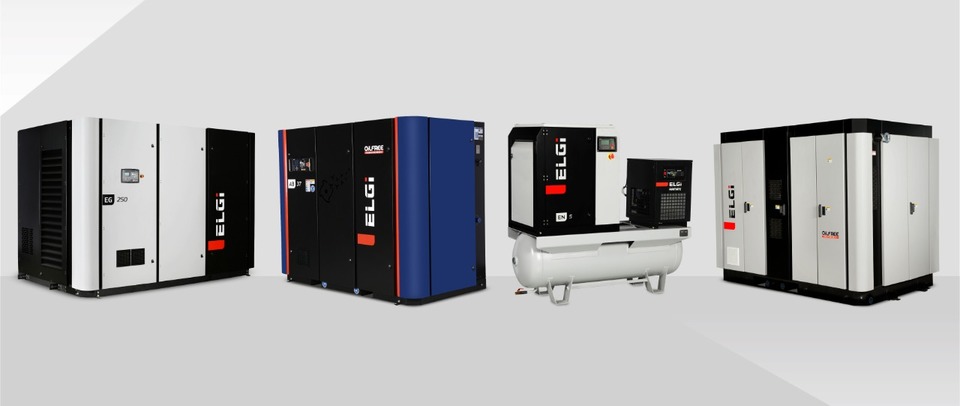Oil-lubricated or oil-free air compressors – which one is right for you?
 Which system is better for your industrial application?
Which system is better for your industrial application?
There are several parameters to keep in mind while buying an air compressor. Apart from deciding the size, rating expressed in CFM (for airflow), and bar (for air pressure), you also have to choose between an oil-free and oil-lubricated system.
The choice depends on the kind of applications where you intend to operate your air compressor. This is why, it is good to understand how these compressed air systems work and the applications that they’re used for.
Oil-lubricated air compressors
The oil injected into the compression chamber helps in keeping the system cool by dissipating the heat and also acts as a lubricant to lower the friction between the moving parts. It also offers sealing and helps in noise reduction.
In addition to rotary screw type, oil-injected or oil-flooded air compressors are also available in piston technology. Their efficiency, robustness and ability to work quietly make them effective for a variety of pneumatic tools and accessories.
Oil carryover, being a concern with many users, ELGi’s lubricated rotary screw air compressors are designed to deliver air with the lowest oil carryover. By using ELGi’s downstream filters the oil carryover can be further reduced to achieve high quality output air suitable for industrial applications. This process enables you to get industrial grade air for industrial use such as manufacturing, construction, recycling, waste management and quarrying.
Oil-free air compressors
As the name suggests, such units do not need oil on their cylinder walls or compression chamber. They have pre-lubricated cylinders coated with a material like PTFE, inside which the piston can slide easily.
Owing to permanent lubrication, the quality of pressurised air generated by these oil-free air compressors is similar to that of the input air; therefore, the air output remains oil-free.
Oil-less air compressors are recommended for industries where air must be completely free from oil vapour and moisture. They are used for the most sensitive applications that commonly include:
- Food & beverage processing
- Pharmaceutical manufacturing
- Operating ventilators, surgical machines, inhaled medication systems (only for breathing air certified machines) and other critical equipment in hospitals
- Semiconductor and electronics manufacturing
- Automotive spray painting
- Textile manufacturing
The oil-free mechanism of these air compressors helps users reduce their carbon footprint.
The advantages and disadvantages of oil-free and oil-lubricated compressors:
The oil-lubricated units are more efficient, durable and less noisy. The oil in these air compressors also helps lubricate and cool down the compressed air. Such models are recommended for industries that do not have stringent requirements for maintaining air quality. A majority of heavy-duty manufacturing plants and workshops using pneumatic tools can opt for oil-lubricated air compressors. Their only downsides are that they need more maintenance owing to regular oil changes.
On the other hand, oil-free air compressors produce clean air, helping organisations maintain optimal product quality and get class 0 certified air for their critical applications. These air compressors have low carbon footprint and need lower maintenance.
While both the technologies are superior and can ensure reliable delivery of compressed air, your choice of air compressors will be influenced by the intended use and the facility where they will be deployed. If you need more details about these variants or want to choose between the screw and piston air compressors available within each category,
Posted: Friday 23 July 2021
